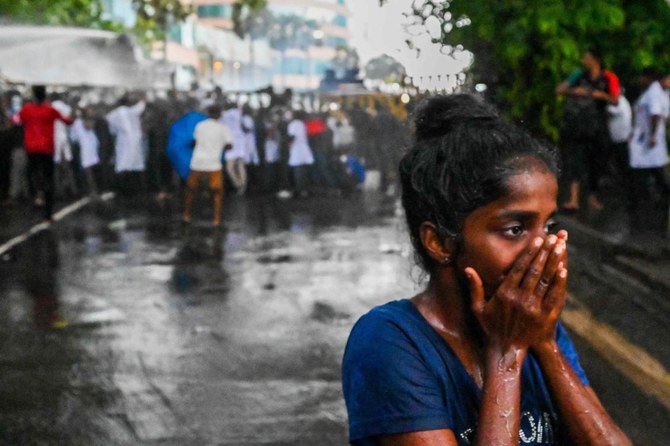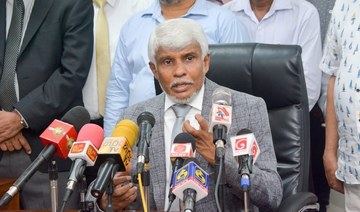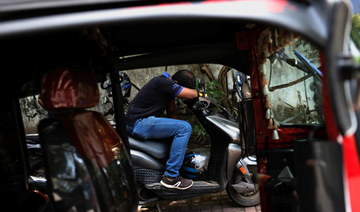COLOMBO: Political reforms proposed by the Sri Lankan prime minister have failed to appease protesters in the country, as they urged on Monday for the interim government to focus on resolving the ongoing economic crisis.
Unable to pay for imports, the island nation has been suffering from acute shortages of food, fuel and medicines for months. Nationwide protests have rippled amid the devastation, which culminated in the resignation of former Prime Minister Mahinda Rajapaksa and his cabinet this month.
As Sri Lanka plunges deep into an economic collapse, protesters, mostly led by young people, have campaigned outside the president’s office for more than 50 days to demand the resignation of President Gotabaya Rajapaksa, whom they blame for the crisis.
Newly appointed Prime Minister Ranil Wickremesinghe has proposed making amendments to the Sri Lankan constitution in order to fix the political issues that had led to the economic crisis, reforms of which include clipping powers of the president and strengthening those of the parliament.
“According to the new system we have proposed, the president will be held accountable to the parliament. The cabinet of ministers is also accountable to parliament,” Wickremesinghe said in a televised address to the nation on Sunday.
Wickremesinghe’s proposed reforms seek to address a constitutional amendment approved in 2020 that had strengthened the powers of Rajapaksa and taken away parliament’s role in making key appointments, such as judges and the police chief.
With Sri Lankans still struggling with inflation and hardly able to afford three meals a day, some said the premier’s proposal fell short of addressing the current issue.
“What we need is an interim government to resolve the current issues and get international support to tide over the present economic difficulties,” Anuruddha Bandara, an activist credited with the #GotaGoHome campaign on social media, told Arab News.
“We will stand by our primary demand for the president to resign without further delay.”
Mujibur Rahman, a spokesperson for Sri Lanka’s main opposition party Samagi Jana Balawegaya, also urged the interim government “to solve the current burning issues.”
“Let us come up with constructive ideas to feed the suffering masses, who are affected by the high cost of living, and provide fuel, gas and power, which are not available in the day-to-day life of the people,” he told Arab News.
The National Movement for Social Justice, an independent collective of Sri Lankan civil societies, said the country needs an interim and all-party government to work together to solve the nation’s financial problems.
“Such a government can win the confidence of the global community,” the collective’s Spokesman Sunil Jayasekera told Arab News.
“Unless that happens, any effort by the prime minister is in vain and would lead nowhere at a crucial time like this.”














